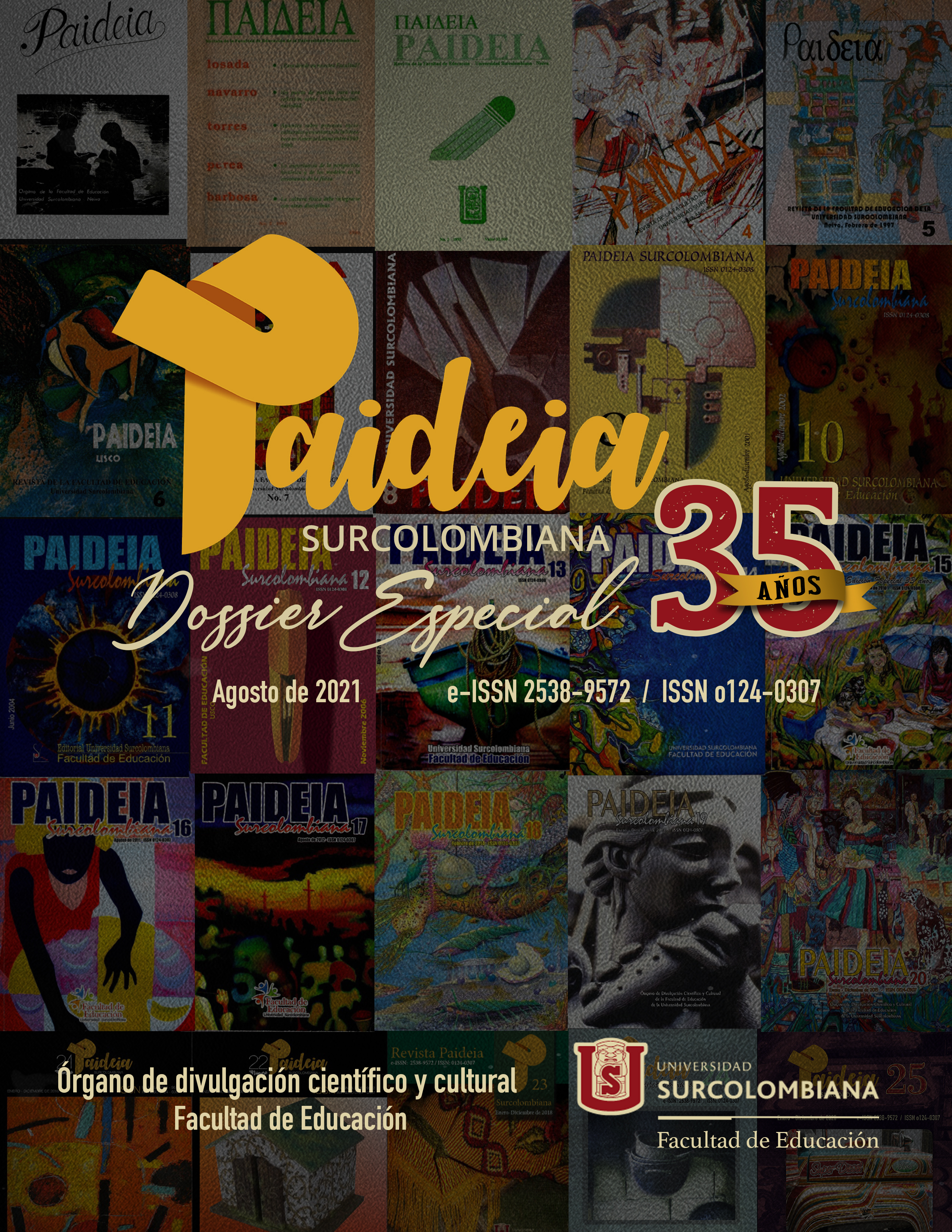Pedagogical practices developed with underachieving students at an educational center in Neiva
##plugins.themes.bootstrap3.article.main##
The research analyzed the pedagogical practices developed with students who present educational underachievement, in a public school in Neiva city, from a qualitative research line with an ethnographic methodology, where in-depth interviews and participant observation were used as instruments for data collection, whereas for the analysis process, elements of grounded theory were used through a self-developed matrix Educational underachievement is approached as an alteration in the learning processes that do not enable students to perform based on their capacities; it manifests itself as a difficulty to learn in general or in specific areas and, in school maladjustment, this problem is outside of medical and psychological diagnosis. Therefore, the students have been made invisible. The analysis allowed us to conclude that these pedagogical practices occur under pressure between the intentions of teachers, who, in their planning, recognize the diversity of situations that may arise, knowing the learning difficulties and the need to make the processes developed more flexible; however, these intentions are altered when they are put into practice due to different situations such as attitude, school relationships, resources, space availability and the influence of the family's relationship with the school, turning them into learning experiences influenced by the context, directed by a curriculum that standardizes education, minimizing it to the evaluation of results.
Downloads
##plugins.themes.bootstrap3.article.details##
Ander- Egg, E. (2007). El taller como una alternativa de renovación pedagógica. Buenos Aires: Magisterio de Río de La Plata
Arnaiz Sánchez, P. (1996). LAS ESCUELAS SON PARA TODOS. Siglo Cero 27, 25-34.
Ausubel; Novak; y Hanesian. (1983). Psicología Educativa: Un punto de vista cognoscitivo. Segunda Edición. Editorial TRILLAS, México.
Bravo Valdivieso, L. (2012). Psicología de las dificultades del aprendizaje. Santiago de Chile: Universitaria S.A.
Creswell, J. W. (2013). Qualitative Inquiry and Research Design: Choosing Among Five Approaches Tercera edición. Los Ángeles: SAGE Publications.
DANE. (13 de 07 de 2018). https://www.dane.gov.co. Obtenido de Departamento Administrativo Nacional de Estadística: https://www.dane.gov.co/index.php/estadisticas-por-tema/educacion/poblacion-escolarizada/educacion-formal#informacion-2018-por-secretaria-de-educacion
Díaz Quero, V. (2006). Formación docente, práctica pedagógica y saber pedagógico. Revista de Educación Laurus, 12, 88-103.
Echeita Sarrionandia, G., & Sandoval Mena, M. (2002). Educación inclusiva o educación sin exclusiones. Revista de Educación 327, 31-48.
MEN. (1998). Serie lineamientos curriculares: Matemáticas. Bogotá: Ministerio de educación Nacional de Colombia.
Ortiz, M. (2000). Hacia una educación inclusiva. La educación especial ayer, hoy y mañana. Revista Siglo Cero, 31(187), 5-11.
Robins, W. J. (abril de 2003). Un paseo por la antropología educativa. Nueva Antropología, XIX (62), 11-28.
Rockwell, E. (1980). Etnografía y Teoría en la Investigación Educativa. Revista Dialogando, 29-45.
Romero Pérez, J. F.; y Lavigne Cerván, R. (2005). Dificultades en el Aprendizaje: Unificación de criterios Diagnósticos. Málaga: Junta de Andalucía.
Rosales Mejía, M. M. (2014). Proceso evaluativo: evaluación sumativa, evaluación formativa y Assesment su impacto en la educación actual. Congreso Iberoamericano de Ciencia, Tecnología, Innovación y Educación.
Sacristán, J. G. (1998). Poderes inestables en educación. Madrid: Ediciones Morata SL.
Sacristán, J. G. (2007). El currículo: Una reflexión sobre la práctica. Madrid: Ediciones Mora.
Sandoval Casilimas, C. (2002). Investigación cualitativa módulo 4. Bogotá: ARFO Editores e Impresores Ltda.
Strauss, A.; y Corbin, J. (2002). Bases de la investigación cualitativa. Técnicas y procedimientos para desarrollar la teoría fundamentada. Medellín: Editorial Universidad de Antioquia.
Taylor, S.; y Bogdan, R. (1992). Introducción a los métodos cualitativos en investigación. La búsqueda de los significados. España: Paidós.
UNESCO. (2008). La educación inclusiva: El camino hacia el futuro. Conferencia Internacional de Educación, (pág. 22). Ginebra.
Vásquez, D. (enero-abril de 2015). Políticas de inclusión educativa: una comparación entre Colombia y Chile. Educación y Educadores, 18(1), 45-61.














